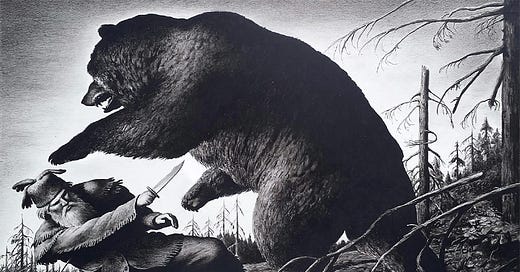When I was twenty, I wanted to write magazine profiles. It was 2005 and this still seemed like a job—difficult to get, but theoretically possible. Of the few profile assignments I ever had, I was only totally satisfied with one—about the mercurial Francis Farewell Starlite— because I felt I managed to interpret him without explaining him.1 After more than a decade of writing fiction instead, I again feel drawn to reading and writing profiles, the form that asks you to translate the mutability of personality and character into sentences that are both true and particular.2
The true sentences are simple enough—born here, raised there, worked this job, went to that school, etc—and while those details might be somewhat interesting, the more exciting task is to depict the subject’s general vibe. The catch is that this more subjective work is where a journalist inevitably, albeit (perhaps) subtly, exposes her own character and insecurities and obsessions.3
There’s a new, controversy-courting profile of the literary critic Merve Emre4 in Business Insider. (Your guess is as good as mine about where the intersection lies between the business world and that of literary criticism.) This profile has, to put it lightly, a lot going on. While it’s well written, its construction also reflects several aspects of our cultural moment that are a bit immature, a bit cowardly, and, above all, extremely fucking annoying.
Emre is one of the critics I’ve been reading in an effort to better define for myself, as a reader and a writer, what makes for strong literary criticism. So much of it these days, even in major newspapers and magazines, is just plot summary alongside some vague and highly subjective praise or dismissal. We too rarely see any grappling with implied ideological stances of a book, and when style is brought up it’s usually described with the most vapid adjectives and phrases.5
A great critic should be a pleasure to read even if you don’t agree with them and a truly great critic will be a pleasure to read even if you never totally agree with them.6 Of course, that implies a reader interested in the questions that the reviewed text (or film or whatever) could be raising, and its sadly true that a greater portion of the audience for book reviews are simply looking to be told what to buy, no different than reading the customer reviews of a nonstick skillet—is it really worth 38.99? But Emre is one of the most prolific of those sharper critics who write for those disinterested in plot summary and star ratings.
So wait—someone wrote a profile about her work and influence as a cultural critic? Ha ha. Nope. Not quite.




